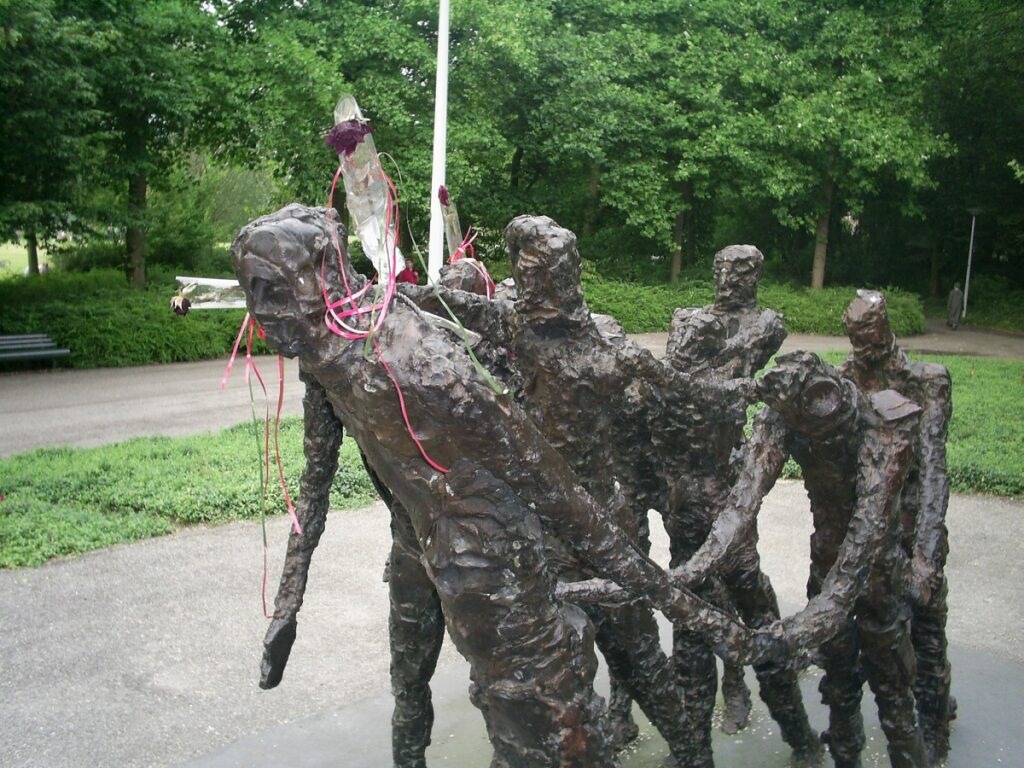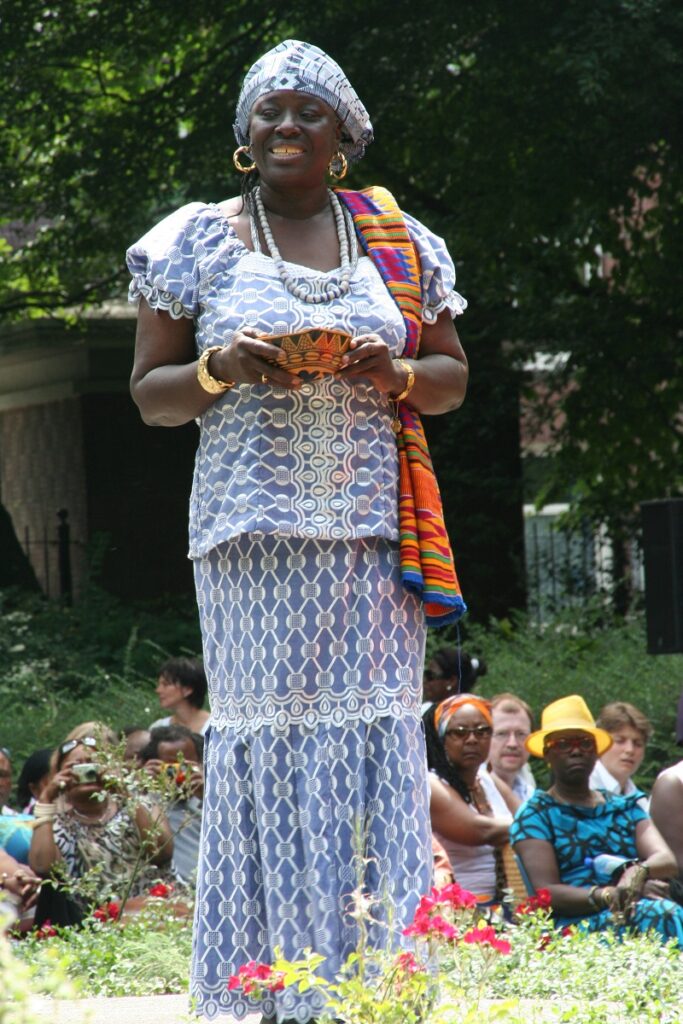On 1 July 2021, 148 years after slavery ended in the Dutch West Indian colonies, Femke Halsema, the Mayor of Amsterdam, said: ‘For the active involvement of the Amsterdam City Council in the commercial system of colonial slavery and the global trade in enslaved people I, on behalf of the College of Mayors and Aldermen, apologize.’ Halsema was followed by the College of Mayors and Aldermen of Rotterdam (10 November 2021), Mayor Sharon Dijksma (Utrecht, 23 February 2022), Mayor Van Zanen (The Hague, 20 November 2022), and last but not least, Prime Minister Mark Rutte (19 December 2022). It is expected that King Willem Alexander will offer his apologies for the involvement of his family, the Oranje-Nassaus, in the slave trade in the Atlantic and Asia on this year’s (2023) abolition day (Keti Koti). Why, many wondered, should we apologize for slavery? It is so long ago, we are not guilty of it.
Memory politics
Before I get to the ‘why’ question, perhaps let me start with the question: why now? For many, the series of apologies may have come as a surprise. All of a sudden and out of nowhere, they may have thought, we need to apologize for something that has happened long ago and that has never been an issue before. Why should we make a point of it now? Although slavery has never before received as much public attention as it does now, the commemoration of slavery in the Netherlands is not new. In fact, that commemoration has had its own dynamic, and has changed in terms of the political message it carries. Already in the 1950s, African Surinamese students in the Netherlands celebrated Keti Koti, Abolition Day on July 1. In 1963 there was even a public manifestation in Amsterdam. More than ten years before Surinamese independence (1975), students in particular mobilized the commemoration in a framework of Surinamese nation-building. ‘Fri moe de’ (free we must be), in that sense, was not only a reminder of abolition, but also a claim to end colonial rule.

The commemorations continued after independence, but for the main part remained private. That began to change in 1993, when a group of African Surinamese organized a public commemoration of ‘the shared history of the Netherlands and its colonies’ on Surinameplein in Amsterdam. That commemoration was meticulously modeled after the national memorial day on Dam square on May 4, commemorating the fallen in the war. Mirroring the national Committee 4/5 May, the group called itself the Committee 30 June/1 July. Like the Dam ceremony, the Surinameplein event also includes two minutes of silence at 8pm, the singing of the Dutch, Surinamese and Antillean anthems, and a performance by a child. Now, slavery had come to carry a different political message: no longer a plea for independence, but a claim for citizenship. Whereas many Surinamese in the 1970s had come to the Netherlands with the idea of returning to an independent and flourishing nation, political events in the 1980s (a coup d’état, civil war, and economic downturn) shattered these dreams. The 1980s therefore saw a re-orientation towards the Netherlands, stemming from a realization that the Netherlands would have to be a home for the foreseeable future. As a consequence, slavery was now re-framed as a claim to citizenship – hence the emphasis on a ‘shared’ history. Ambalavaner Sivanandan’s dictum: ‘we are here because you were there’ gained popularity. Their manifesto of 2002 also included demands about pensions, education, residency, radio and TV broadcasting licences, and health insurance. These demands, although they had been made throughout the 1990s, reached ever larger audiences after the unveiling of the national slavery memorial in Oosterpark, Amsterdam. This ceremony is usually attended by high-ranking representatives of the state, including the mayor, ministers, the Prime Minister, and the King.
Recent commemorations are increasingly embraced by young people of African-Surinamese descent (and to a lesser extent people of African Antillean descent), born in the Netherlands and exposed to racism in education, the housing sector, or work. They articulate slavery as a historical responsibility of the Dutch state and society at large.
What is changing now, is that slavery is less and less presented as a ‘Surinamese’ or ‘Antillean’ thing, but as something that concerns Dutch society as such. More and more, white Dutch citizens come to the realization that commemorating slavery is not only about someone else’s pain (although clearly that is also important), but that it concerns Dutch society as a whole. Now, one might argue that there are many ways of taking responsibility for that past. Why apologies? Why that particular form?
Apologies
In fact, apologies are notoriously difficult, especially when they concern collectives. As Michel Rolph Trouillot (2000) argued, in order for apologies to work one must establish the identity, or the self-sameness of two fundamentally different entities: a collective in the present and a collective in the past. One must show that the collective perpetrating an act is actually the same as the one apologizing – an impossible task according to Trouillot. Indeed, it is easy to dismiss this, as for instance the populist politician Pim Fortuyn has done: those who suffer from traumas should visit the psychiatrist, instead of sitting at a negotiating table, he wrote in 2002. Apologies may even be the flipside of this kind of right wing populism. Take, for instance, Rita Verdonk, who upon launching her political movement ‘Proud of the Netherlands’ (Trots op Nederland) in 2007, exclaimed that the Netherlands had been a hospitable country for centuries, and that it is not in the Dutch nature to discriminate. Verdonk imagines a nation characterized by unwavering goodness, a kind of völkische idea of an essentialized people characteristic for populist ideology.
In legal terms apologies are less of an issue. The present Dutch government and city councils are the legal successors of historical governments. This is why many apologies have been made by sitting governments on behalf of their predecessors. Think, for instance of Willy Brandt’s famous ‘Warsaw genuflection’, a gesture of both commemoration and apology in the context of the 1943 uprising in the Wasaw Ghetto (which at the time only 41 per cent of West Germans approved of).
Abortive rituals?
Nevertheless, Trouillot argues that apologies should be seen as ‘abortive rituals’: ‘collective apologies are meant not to succeed – not because of the possible hypocrisy of some of the actors but because their very conditions of emergence deny the possibility of a transformation’ (Trouillot 2000, 185). I’m not sure I agree with Trouillot that apologies are necessarily ‘abortive’. I do recognize the danger of essentializing collectives, and indeed, the slavery debate in places like the Netherlands does generate presumably clear cut identities of blackness and whiteness, victim and perpetrator, oppressor and oppressed. Looked at ethnographically, the picture becomes much more complex. Relations between African Surinamese and Ghanaians, for example, can sometimes be as tense, if not more, as those between African Surinamese and white Dutch; African Surinamese in Suriname think and feel differently about slavery compared to African Surinamese in the Netherlands; political outlook can be more important than racial-ethnic identification as black or white, and so on.
However, as an anthropologist I do not want to dismiss the power of rituals so easily. Trouillot argued that collective apologies are rituals that have a demonstrative and a transformative dimension. The goal of a ritual in general is to transform a person or collective from one state to another. Rituals of collective apology, according to Trouillot, fail to achieve such a transformation because these rituals rely not on transformation but on durable identities. My sense is that Trouillot was too quick to dismiss apologies purely based on their structural premises. It remains interesting to ask how such rituals may work in practice.
Collective rituals, to speak with Benedict Anderson, are also a space to imagine oneself. Collectives, one might say, do not exist outside of, or prior to these rituals, but they emerge out of these rituals in the first place. This means that collective rituals also present opportunities to imagine a collective subject in a new way. This is precisely what has been happening around the issue of slavery in places like the Netherlands in the past two decades.

Two examples may show this. The first is from the year 2006. During the Algemene Beschouwingen, a parliamentary debate about the government’s plans for the coming period, then Prime Minister Jan Peter Balkenende, a Christian Democrat, said in reply to the critique by Femke Halsema, then a member of the oppositionof the GreenLeft: ‘I don’t know why you are being so negative and annoying about this. … Let’s be happy together! Let’s be optimistic! Let us say: Once more, The Netherlands can do it! This VOC-mentality, looking past borders, dynamism! Right?!’ By ‘VOC mentality’ he referred to what he perceived as the Dutch entrepreneurial spirit as embodied in the Verenigde Oost Indische Compagnie (United East India Company), a mindset that supposedly had made The Netherlands a great economic and political power in the world. Like Verdonk, he cherished Dutch colonialism.
Although Mark Rutte, from a liberal party that has similarly been proud of Dutch imperial history, has long argued that you that you cannot hold people in the present responsible for what happened in the past, he now imagines the nation differently. In his apology speech, he said: ‘We, living in the here and now, can only recognize and condemn slavery in the clearest terms as a crime against humanity. … And we in the Netherlands must face our share in that past. … [The national archives are] the place for national examination of conscience.’ It was a rare moment of vision for this Prime Minister – a liberal to the bone – who has notoriously claimed that those who want vision should visit a doctor.
So, have these apologies been transformative? There are many who did not think so, especially because after years of rejection and hesitation, they came very suddenly, without consultation of societal partners, and deliberately on a date without any ritual significance in any of the countries involved. Nevertheless, many agree that it was a moment in which the Prime Minister showed unexpected statesmanship. In spite of considerable societal backlash, he chose to imagine the Netherlands differently, turning away from the classic nationalist narrative of a glorious imperial past to a certain humility, mindfulness, and care. It remains to be seen whether the cabinet will not just talk the talk, but also walk the walk, but it is possible that an important step has been made in the process of re-imagining the Netherlands.
Markus Balkenhol is a social anthropologist at the Meertens Institute, Amsterdam. He specializes on colonialism, race, citizenship, cultural heritage and religion. His 2021 book Tracing Slavery: The Politics of Atlantic Memory in the Netherlands is published by Berghahn Books.
References
Trouillot, Michel-Rolph. 2000. “Abortive Rituals: Historical Apologies in the Global Era.” Interventions 2 (2): 171–86.
Cite as: Balkenhol, Markus 2023 “Apologizing for slavery: notes on a Dutch surprise” Focaalblog 28 June. https://www.focaalblog.com/2023/06/28/markus-balkenhol-apologizing-for-slavery-notes-on-a-dutch-surprise/
Discover more from FocaalBlog
Subscribe to get the latest posts sent to your email.